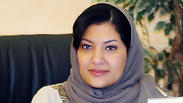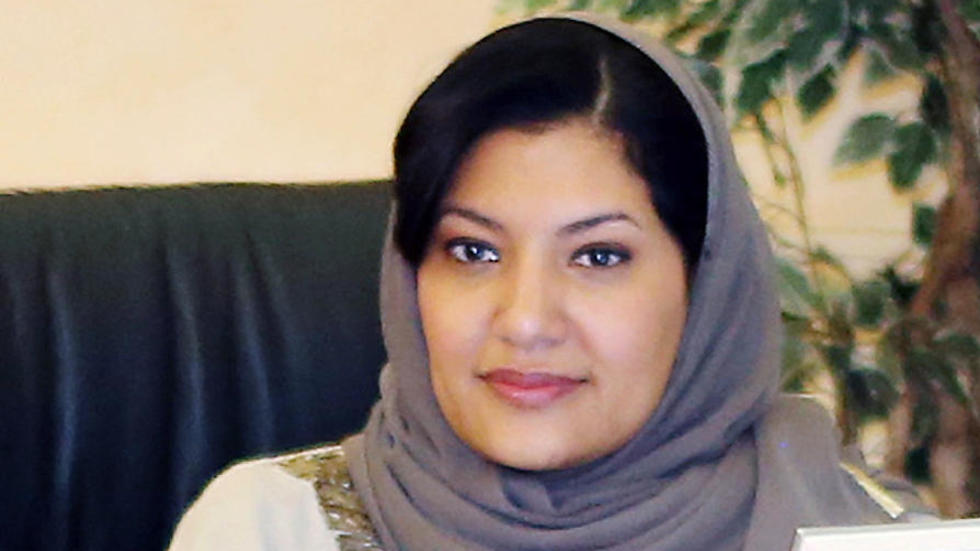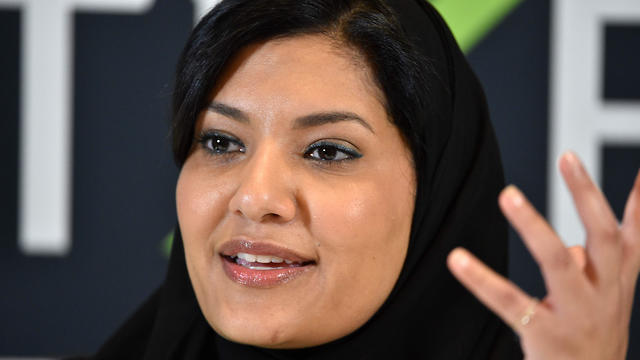The House of Saud has named Princess Reema bint Bandar Al Saud as ambassador to the United States—making her Saudi Arabia’s first-ever female envoy to Washington.
Bint Bandar entered the political and diplomatic arena through the business and financial portal, being a member of a number of local and international advisory councils, including the Advisory Board of the Saudi National Initiative for Creativity, the Global Advisory Council of Ober and the TEDx Conference Advisory Council.
Following the announcement, she posted on her official Twitter account her appreciation and promises to the Saudi people. “I will work, God willing, to serve my country, its leaders and all its people,” she wrote.
Bint Bandar, who was born in 1975, holds a BA degree in Museum Studies with an academic focus on the preservation of historical monuments, from George Washington University in Washington, D.C. Recently, the World Economic Forum appointed her to its Young Global Leaders program.
“Part of empowering females in the kingdom is appointing the most efficient person for the position, whether man or woman,” Samar al-Mogren, a Saudi writer told The Media Line. Mogren described the move as very positive and said it gave hope to others.
“I expect to see more Saudi women filling political roles in the near future,” he said.
Mogren pointed out that in the past 10 to 15 years, the status of women in Saudi Arabia has been bolstered, and doors have started opening for them to work in diplomacy.
“Let’s not forget that Princess Reema is capable, as she comes from a home with deep diplomatic roots,” he said.
In this respect, her father, Bandar bin Sultan Al Saud, was ambassador to Washington from 1983 to 2005.
The appointment of the princess comes as the kingdom faces renewed criticism over its treatment of women. Perhaps more notably, she replaces Prince Khalid bin Salman, the younger brother of Crown Prince Mohammad bin Salman, in a shake-up prompted by ongoing fallout over Riyadh’s role in the killing last October of dissident Saudi journalist Jamal Kashoggi inside Saudi Arabia’s consulate in Istanbul.
According to US intelligence, the heir to the Saudi throne at the very least knew about plans to kill the journalist, a revelation that caused many in the American political establishment to call for downgrading bilateral ties with Riyadh and leveling sanctions on those responsible. The House of Saud initially denied any involvement in the killing, but has since accepted responsibility while trying to keep the crown prince away from the fallout.
Qasem Qaseer, a Lebanese political analyst and writer, confirmed that the appointment of the Saudi princess came as part of the kingdom’s effort to shield its leaders following the murder of Kashoggi.
“Obviously, there is a reason the Saudi government appointed a female whose father is really well connected in Washington and aware of its political scene,” he told The Media Line, adding that the ultra-conservative Muslim country is trying to change stereotypes about how the government has been treating its citizens, especially females, in terms of freedoms and human rights.
“Bin Salman makes decisions regarding women in the kingdom that look as if he is honoring them,” Qaseer said. “However, in reality, it isn’t the case. We can call them ‘beautification steps,’ but empty. There are tens of female activists in Saudi prisons.”
He stressed that what is really needed for Saudi women is a real system of freedoms that insures their rights.
After making waves last year by removing a ban on female drivers, the Saudi crown prince has come under fire for imprisoning some of the very same activists that pushed for the reform. Most recently, the royal family was slammed over a controversial mobile app that allows Saudi men to monitor the whereabouts of their wives and unmarried daughters.



















